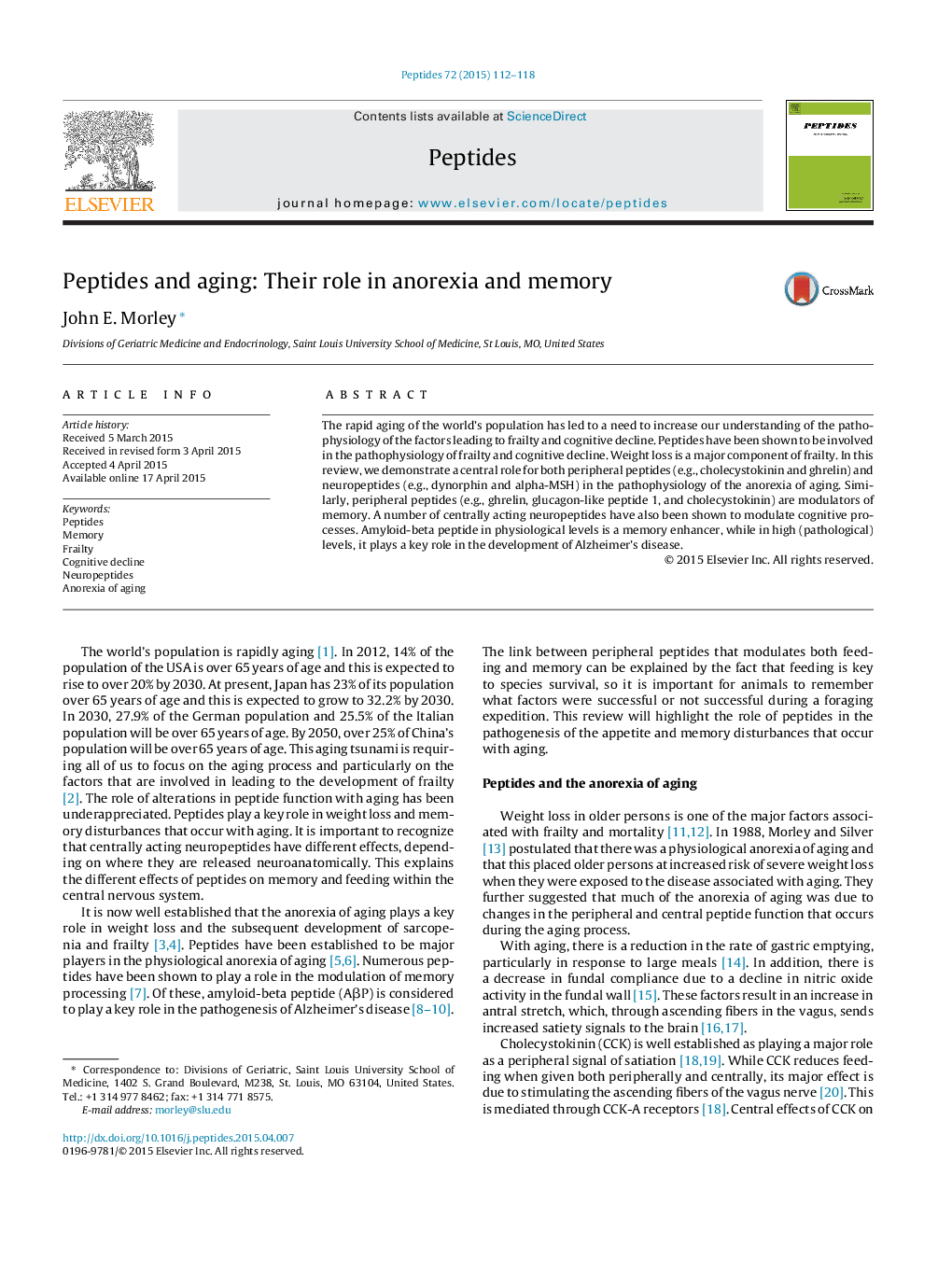| کد مقاله | کد نشریه | سال انتشار | مقاله انگلیسی | نسخه تمام متن |
|---|---|---|---|---|
| 2005851 | 1541707 | 2015 | 7 صفحه PDF | دانلود رایگان |
• Both central and peripheral peptides play a modulatory role in food intake and memory.
• Peptide-agonist drugs are under development that may enhance food intake and improve memory in older persons.
• Physiologically, amyloid-beta peptide improves memory, while at high concentrations, it plays a major role in the pathogenesis of Alzheimer's disease.
The rapid aging of the world's population has led to a need to increase our understanding of the pathophysiology of the factors leading to frailty and cognitive decline. Peptides have been shown to be involved in the pathophysiology of frailty and cognitive decline. Weight loss is a major component of frailty. In this review, we demonstrate a central role for both peripheral peptides (e.g., cholecystokinin and ghrelin) and neuropeptides (e.g., dynorphin and alpha-MSH) in the pathophysiology of the anorexia of aging. Similarly, peripheral peptides (e.g., ghrelin, glucagon-like peptide 1, and cholecystokinin) are modulators of memory. A number of centrally acting neuropeptides have also been shown to modulate cognitive processes. Amyloid-beta peptide in physiological levels is a memory enhancer, while in high (pathological) levels, it plays a key role in the development of Alzheimer's disease.
Journal: Peptides - Volume 72, October 2015, Pages 112–118
